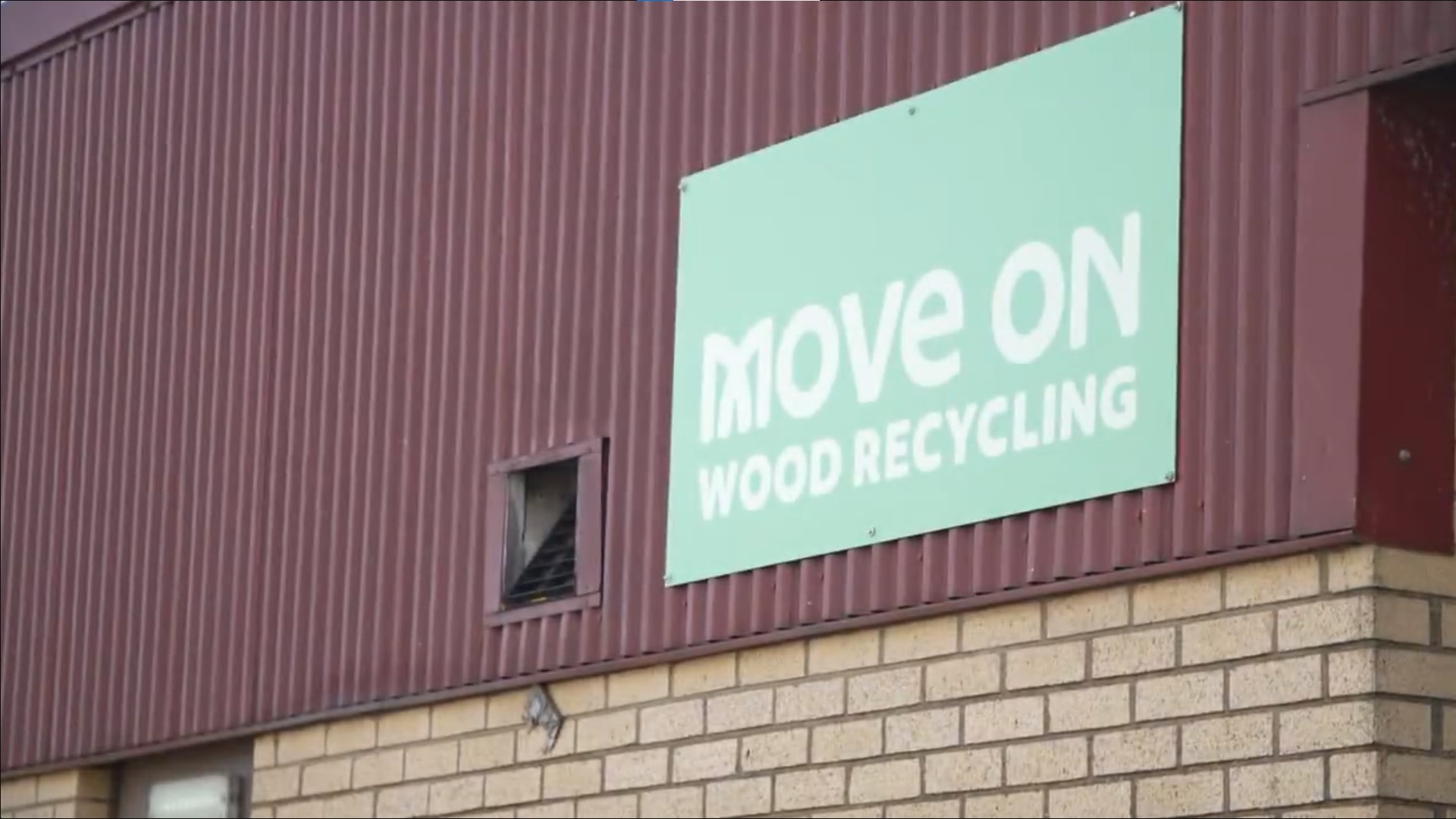In this issue:
Featured Story
From Landfill to Resource:
The Transformation in the UK’s Wood Waste Management
The UK produces 4.5 million tonnes of wood waste every year. This figure has remained remarkably stable (apart from a slight dip in 2020 because of Covid) for the last 20 years. Construction and demolition, manufacturing, packaging and households all contribute to this mountain of discarded material – from local people taking discarded items to domestic waste recycling sites to major infrastructure projects like Crossrail. However, the story of what happens next has undergone a remarkable shift since the millennium.

Back in 2000, landfill was the destination for nearly all wood waste. On construction sites this valuable material was thrown into skips along with rubble and anything else that needed to be discarded on site. But putting wood in landfill had particularly detrimental environmental consequences. Decaying wood releases methane, a greenhouse gas with a significantly higher warming potential than CO2 in the short term.
Thankfully, the tide has turned. The growth of the UK wood recycling sector is a major success story. Recycling from chipped material for panel board and animal bedding has increased, and biomass has become a key component with over 2.6 million tonnes of waste now going to that sector every year. Biomass releases the CO2 that has been absorbed relatively recently when the timber grew, which is a better option than sending CO2 that has been locked up for millennia in the form of fossil fuels into the atmosphere.
However, for much of the timber found in the waste stream we can still do better. The UK is the world’s third largest importer of timber, so while recycling by chipping marks a significant improvement, the future needs an even greater focus on reuse. By extending the life cycle of existing timber, we can further minimise our reliance on virgin timber imports. To do this, we need to sort the waste, and separate the reusable material. This will save valuable resources, cut down on the energy used to import timber and keep the CO2 locked up longer, providing the best environmental solution for wood waste, alongside a flourishing chipping sector for timber that has reached the end of its life.
Ultimately, the UK’s story of waste wood management serves as a beacon of hope, showcasing the power of innovation and a commitment to sustainability. As we move forward, prioritising reuse alongside recycling will be key to a truly circular economy for wood, ensuring a greener future for all.
Awards
Community Wood Recycling Named as Wood Recycling Business of the Year 2024
We are very proud to be named the winner in the Wood Recycling Business of the Year category at the letsrecycle.com Awards for Excellence in Recycling and Waste Management 2024!
Our entry was titled Community Wood Recycling – Pioneers of Reuse. It’s great to have this recognition of our work from the business community, showing that social enterprise has a place at every level of the supply chain, and that the wider recycling and waste management sector and their clients are embracing circular economy best practice.

Our mission to save timber for reuse and change the lives of disadvantaged people is at the heart of what we do, but as a social enterprise funded entirely by trading, we need to provide a commercial service that meets the needs of our clients. Winning this award judged by experts in the recycling and waste management industry demonstrates that we can do both.
Network Spotlight: Southampton Wood Recycling
From a Sailor’s Need to a Community Resource
Southampton Wood Recycling Project (SWRP) was born when the project’s founders, keen sailors of traditional gaff-rigged boats, had a problem during a winter maintenance project. A small piece of rotten oak needed replacing, but finding the right wood at a reasonable price proved difficult.
Exhausted after exploring various options, SWRP Managing Director Andrew Challis stumbled upon a community wood recycling project. This was the perfect solution: a small, inexpensive piece of oak offcut. It was this experience that sparked the inspiration to create a similar project in Southampton.
The social enterprise particularly works to help people who have been in rehab to take the next step in their journey. Andrew and the team have built up links with local NHS mental health services, who direct volunteers to them. These volunteers who come to the SWRP have finished rehabilitation programmes, and need a work-like environment where they can benefit from routine and learn valuable skills, but are not yet ready to go into paid employment. They build up their skills, starting with denailing wood in the workshop, a manageable activity that provides a sense of accomplishment. Other opportunities include helping with unloading the trucks and sorting the wood, giving them experience of working as part of a team, stocking the shelves and even starting to make things in the workshop. All this activity, and the experience of being valued and part of a community, gives them a sense of purpose, allowing them to make the crucial leap into meaningful activity out of the house. SWRP serves as a stepping stone for volunteers, with some transitioning to employment opportunities within the project itself and others moving on to more training or work in other organisations.
Alex came to SWRP as a volunteer and has gone on to employment at the project. He explains:
“Volunteering at Southampton Wood Recycling built up my confidence. I love feeling part of a team again. Having a job here has changed my life.”

Andrew had this to say about Southampton Wood Recycling’s work with volunteers:
“So much of what we do isn’t about teaching particular carpentry or woodworking skills; it’s more about building the confidence in people that they are capable of doing a full day’s work. When you have been out of work for a couple of years, your confidence goes completely, and it can be really hard to get back into the workplace. We provide gentle steps back into employment, starting with the simplest things of getting out of the house and coming for a day’s volunteering.”
Sustainability News For You
News From Our Network
Want to get involved?
There are all kinds of ways to support our work while getting a great deal. If you work at a business which creates a lot of wood waste, you can use our wood waste collection service. If you’re interested in timber, wooden products, or volunteering, get in touch with your local enterprise to find out more.




